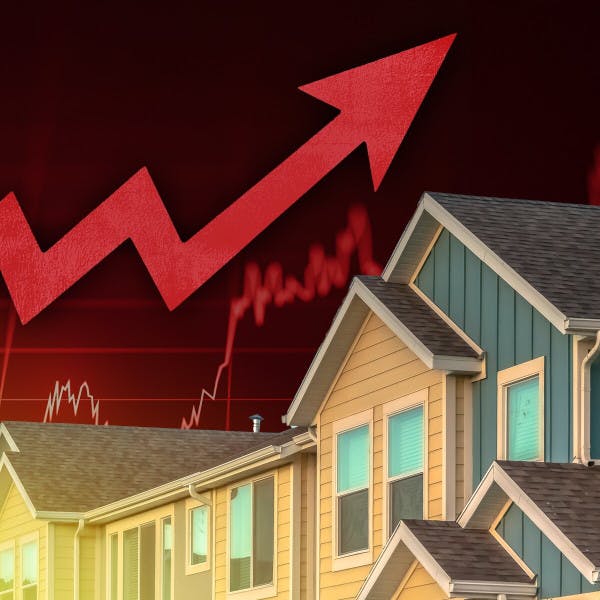Mortgage interest rates soar above 7%, reaching new 2024 high
No rate relief is expected soon, and home prices are also setting records this spring, suppressing existing home sales.
Key points:
- The average 30-year fixed-rate mortgage hit 7.1% this week, surpassing the 7% mark for the first time in 2024.
- As rates remain elevated, existing home sales slowed in March, while the median monthly housing payment rose 11% year-over-year to $2,775.
- The Federal Reserve does not appear eager to cut rates anytime soon, diminishing the likelihood of rate relief in the first half of the year.
A new high for mortgage interest rates and a slowdown in existing home sales are making it clear that a rebound in the real estate market isn't happening this spring.
The 30-year fixed-rate mortgage averaged 7.1% this week, according to the latest Freddie Mac survey. It's the first time average rates have exceeded 7% in 2024, and a significant increase from a year ago when rates averaged 6.39%.
The 15-year fixed-rate mortgage averaged 6.39% this week, up from 5.76% a year ago.
Elevated rates appeared to take a toll on existing home sales last month. Sales were down 4.3% from February to a seasonally adjusted annual rate of 4.19 million, according to the National Association of Realtors. Inventory of existing homes grew 4.7%, putting it at 3.2 months of supply nationally.
Even with the slowdown in existing sales, median home prices continue to climb, rising 4.8% year-over-year to $393,500. It's the ninth consecutive month of annual price gains.
These dynamics have resulted in record-high costs for purchasers, according to Redfin's latest market report. The combination of high mortgage rates and home prices have pushed the median monthly housing payment to $2,775, up 11% year-over-year.
Even as sales dip, home appreciation continues to rise
Why are home prices still going up in this tough environment? One reason is the prevalence of cash buyers who are less affected by mortgage rates, said Lisa Sturtevant, chief economist for Bright MLS.
"What this means is that homebuyers who are sensitive to higher interest rates — first-time and first-generation buyers, moderate-income buyers — are losing out twice. Once because of higher rates and the second time because they have to compete with buyers bringing all cash," Sturtevant said.
While some prospective buyers have grown accustomed to higher rates, others may be deciding to buy now because they're concerned rates could rise even more, said Chen Zhao, Redfin's economic research lead — a factor that could explain the increase in mortgage applications despite the jump in rates, suggested Joel Kan, chief economist at the Mortgage Bankers Association.
Applications rose 3.3% week-over-week, but are still 10% below last year's pace.
Rate cuts? Maybe later this year
The Federal Reserve continues to signal that interest rate cuts will not be happening as soon as many economists had previously predicted. Atlanta Federal Reserve President Raphael Bostic said on April 18 that he doesn't think it would be appropriate to lower borrowing costs until the end of the year, Bloomberg reported.
The expectation now is that mortgage rates in the 7% range will persist through the spring, slipping to the mid-to-high 6's this summer, Sturtevant said.
